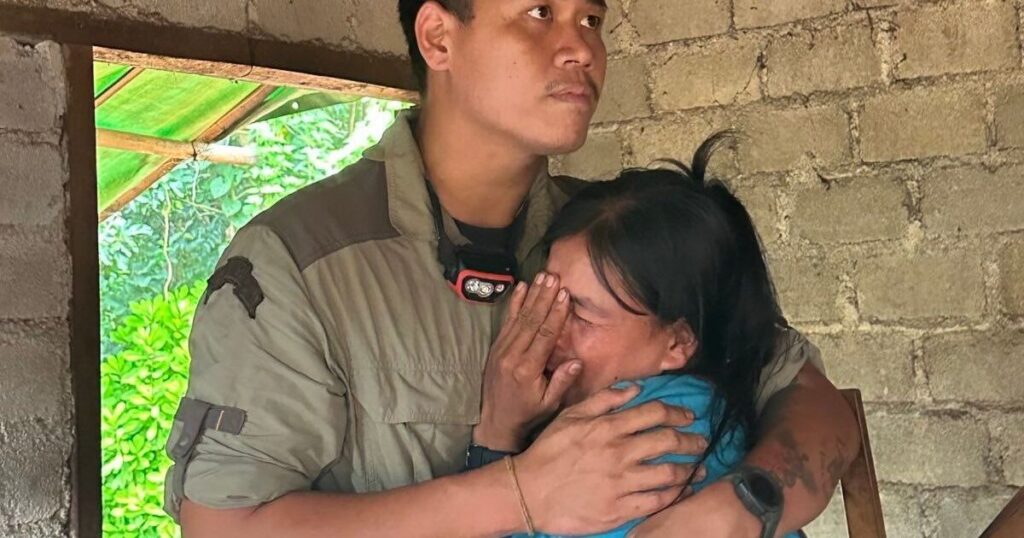In the ongoing conflict in Burma (Myanmar), the Free Burma Rangers (FBR) play a vital role in providing humanitarian aid amid the devastating impacts of military aggression by the Tatmadaw, or the Burma Army. Emerging as a response to the humanitarian crisis caused by the ongoing civil war, FBR operates in regions like Karenni and Shan States, where they assist victims of the military’s attacks. With bombings resulting in casualties among civilians and resistance fighters, FBR teams have been instrumental in evacuating displaced individuals and providing emergency medical care. Despite their commitment to aiding those affected, they face the formidable reality of escalated airstrikes aimed at civilian targets, exacerbating the challenges of delivering support.
Founded nearly three decades ago by David Eubank, a former special forces officer, the FBR has evolved into a multi-ethnic, faith-driven organization. The Rangers consist of members from various ethnic groups, including Karen, Karenni, Shan, and Chin, among others, many of whom actively oppose the military junta that seized power in a 2021 coup. While the organization was rooted in Christian faith, it welcomes individuals from diverse backgrounds, uniting them under a principle of love and compassion. This commitment to aiding those in distress is not limited by the affiliations of the individuals helped, as FBR medics extend care to all injured parties, including Tatmadaw soldiers, under the belief that everyone deserves support.
Internal displacement in Burma has reached alarming levels, with 3.3 million people currently lacking the protection afforded to refugees. The FBR stands as a crucial lifeline for these internally displaced persons (IDPs), often operating in areas inaccessible to larger aid organizations. By training local teams in emergency response and providing assistance, the FBR not only helps in times of acute need but also documents human rights abuses perpetrated by the military regime. Internationally, the plight of IDPs remains largely unaddressed, as significant governments, including the U.S., EU, and UN, have failed to deliver meaningful support to the resistance and those affected by the conflict.
The situation has intensified since October of last year, as the Tatmadaw escalates air assaults, backed by military resources from China, Russia, North Korea, and Iran. Eubank highlights a troubling alignment of powerful nations aiding the junta, leading to unprecedented levels of aggression rarely seen since World War II. While the resistance forces rely on a patchwork of outdated weaponry, they remain ill-equipped to counter modern aerial threats, underlining the dire need for international assistance in terms of military support. The lack of substantive intervention from major powers raises questions about their commitment to democracy in Burma, particularly in light of the absence of recognition for the National Unity Government, which functions as the country’s government in exile.
Despite the overwhelming challenges, there remains an undercurrent of hope among individuals committed to fostering unity against the military dictatorship. Eubank emphasizes a newfound solidarity across various social, ethnic, and political lines within Burma, as people unite in their struggle for a democratic future. Rather than succumbing to despair, these collective efforts signify a pivotal moment that could reshape Burma’s political landscape. This unity manifests as a driving force, motivating both humanitarian efforts and resistance actions against the Tatmadaw, all aimed at establishing a democratic society grounded in inclusivity.
In light of these circumstances, the international community faces a moral imperative to act. Eubank calls for a multi-faceted approach that includes prayer, humanitarian relief through local organizations, and the formal recognition of the National Unity Government. Furthermore, addressing strategic concerns about regional stability in Southeast Asia and countering the military’s advanced weaponry becomes increasingly crucial. Without timely intervention, there is a real risk of Myanmar becoming increasingly dependent on authoritarian powers. The promise of unity and the pursuit of democracy provide a poignant reminder of the resilience found amid conflict, offering a glimmer of hope for the future of Burma.

